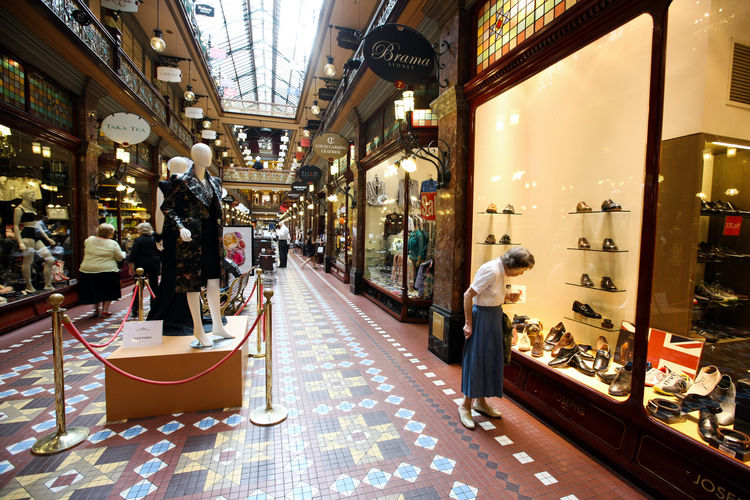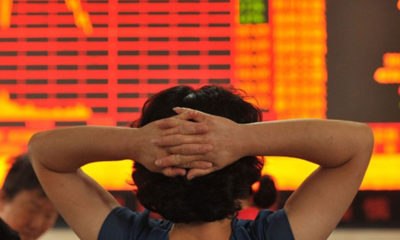- Australian Retail Sales Missed Estimates
For the first time in four months Australian retail sales have missed expectations, a disappointing outcome given strength in other spending and sentiment indicators.
According to the ABS, sales rose by 0.2% to $25.665 billion in November in seasonally adjusted terms, just half the rate that had been expected by economists.
It was also a noticeable step down from the 0.6% and 0.5% increases registered in the prior two months.
As a result of the weak November result, the annual pace of sales slowed to 3.3%, down from the 3.5% level reported in October.
It now sits at the weakest level seen since August last year.
By category, sales of food (0.4%), clothing, footwear and personal accessories (1.7%) and household goods (0.2%) all increased, offsetting declines at cafes, restaurants and takeaway food services (-0.8%), department stores (-0.3%) and other goods (-0.1%).
Over the past year, sales of clothing, footwear and personal accessories recorded the fastest pace of growth all categories at 5.8%, edging out sales at cafes, restaurants and takeaway food services which increased by 5%.
Food retailing — the largest component of retail sales by dollar spend — increased by 3.1% to $10.312 billion.
Department store sales — at -3.2% — was the only category to record a decline in sales from the levels of a year earlier.
By state and territory, it was the most populous states that outperformed — New South Wales and Victoria — recording solid gains of 0.5% and 0.5% respectively.
Elsewhere sales grew by 0.3% in the Northern Territory and 0.1% apiece in Queensland and Tasmania, helping to offset declines of 0.6%, 0.4% and 0.1% in Western Australia, South Australia and the ACT.
Mirroring the monthly performance, Australia’s eastern states and territories recorded the strongest growth in sales over the past year.
Despite falling modestly in November, sales in the ACT grew by 6.4% from November 2015, the fastest pace reported across the nation.
At 4.3%, 3.5% and 3.7%% respectively, sales in New South Wales, Victoria and Queensland also outperformed, a sign that higher house prices and reasonable labour market conditions continues to support household spending.
At the other end of the spectrum, sales in Western Australia fell by 0.5% over the past year, indicating that weak labour market conditions as a result of the mining infrastructure downturn continue to weigh on spending.
At 0.3% and 2.8%, sales in Northern Territory and South Australia — highly exposed to the fortunes of the mining industry — were also below the national average.
Despite recording modest growth, the November retail sales report is a disappointment, particularly given strength in other household-specific indicators over the same period.
According to data released by the National Australia Bank on Monday, online retail sales grew by a solid 1.1% over the same period.
That followed a report from the Commonwealth Bank of Australia which revealed that economy-wide spending — including on services — grew at the fastest pace seen since the global financial crisis in November.
The ABS report offsets any optimism that was generated by those reports, casting doubt as to whether household spending — the largest component within the Australian economy — is picking up.
However, not all is lost.
Excluding the today’s report, sales growth has been robust in recent months, suggesting that the weakness seen in November may have been partially as a result of statistical payback.
Consumer confidence also remains elevated, particularly for current family finances, which is a promising sign given it has a tendency to act as a lead indicator on household spending.
Looking ahead, markets will be paying close attention to the December retail sales report, especially as it includes quarterly retail sales volumes which feeds into Australian GDP.
It declined unexpectedly in the September quarter, contributing to the large quarterly contraction reported in Australia’s national accounts.
The market reaction has been modest to the November retail sales report with the Australian dollar and ASX 200 both weakening on the result.
Australian bond futures have also strengthened, indicating that yields have fallen.


 Forex2 weeks ago
Forex2 weeks ago


 Naira2 weeks ago
Naira2 weeks ago
 Naira4 weeks ago
Naira4 weeks ago
 Billionaire Watch1 week ago
Billionaire Watch1 week ago
 Company News4 weeks ago
Company News4 weeks ago




 Naira2 weeks ago
Naira2 weeks ago




 Naira1 week ago
Naira1 week ago




 Naira4 weeks ago
Naira4 weeks ago



















